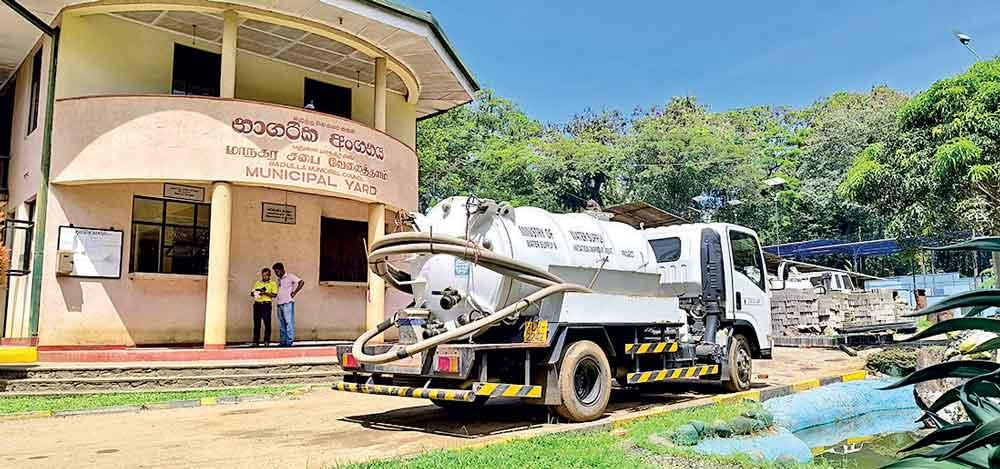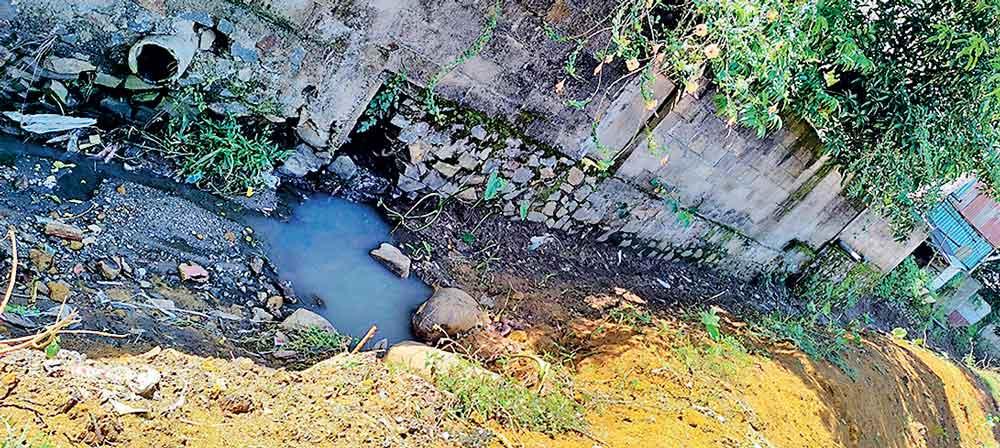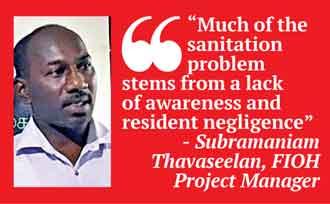Reply To:
Name - Reply Comment

Although a gully bowser service is available for latrine clearance at a cost of around Rs. 7,500, many residents choose to avoid this expense by illegally connecting their wastewater to the main drainage
In Badulla, families in tea plantation communities struggle daily to obtain clean water and enjoy basic sanitation. Distant, unreliable water sources and poor infrastructure expose residents to frequent illnesses. The sad part of their story is that there is limited relief in sight for their woes. For women and children, who bear much of the burden, the absence of safe water and sanitation remains a harsh, ongoing reality.
Organizations like The Future in Our Hands (FIOH) and Centre for Environmental Justice (CEJ) are working to raise awareness and bring government attention to these critical needs.
The Future in Our Hands (FIOH) organization has collaborated with the Centre for Environmental Justice (CEJ) to implement a project within the Badulla Municipal Council area. The initiative seeks to raise awareness on sanitation issues in several Grama Niladhari areas, including Kanupelella, Katupelella, Hindagoda, Badulupitiya and Sumanatissagama.
The goal of the project is not to build sanitation facilities, but to empower locals and draw government attention to the ongoing problems.
Subramaniam Thavaseelan, FIOH Project Manager, underscored that while the Badulla Municipal Council operates a sewage and wastewater treatment plant and offers gully service facilities, residents suspect that political interference affects their access to these services.
This interference often complicates the government’s efforts to provide consistent service to affected areas.
Efforts by the community, council buckled
Despite efforts by the Municipal Council to promote sanitation and hygiene, many residents remain resistant or unaware of these initiatives.
Thavaseelan pointed out that some estate workers, many of whom had lived in Sri Lanka for over two centuries, still lack essential sanitation facilities.
“Much of the sanitation problem stems from a lack of awareness and resident negligence,” said Thavaseelan.
“Some avoid using the provided sanitation services and discharge wastewater into the environment instead. Unauthorised construction has obstructed drainage, and around 5% of estate residents lack proper toilets, with multiple families often forced to share a single facility,” he said.

The ugly sight of swerage in the area
Concerns and environmental impact
During the Daily Mirror’s visit to Hindagoda and Badulupitiya, residents expressed concerns about sewage from nearby suburban areas flowing into the Karanda Canal.
This pollution reaches the Badulu Oya, a tributary of the Mahaweli River, posing further health and environmental hazards.
L.H. Premasiri, a resident of Viharagoda, spoke about a drainage system near Dharmadutha College that has been contaminated with sewage. He urged local authorities to construct a proper drainage system and prevent black water discharge. Although a gully bowser service is available for latrine clearance at a cost of around Rs. 7,500, many residents choose to avoid this expense by illegally connecting their wastewater to the main drainage.
Municipal response
 Badulla Municipal Council Engineer Senthur Kumar explained the wastewater treatment process, which involves collecting sewage from both public and private systems around Badulla.
Badulla Municipal Council Engineer Senthur Kumar explained the wastewater treatment process, which involves collecting sewage from both public and private systems around Badulla.
The facility can treat only up to 50 cubic metres a day, although it currently processes around 30 cubic metres.
Kumar noted that while there is no sewage pipeline in Badulla, a feasibility study was underway to install one in the town’s congested areas.
To encourage usage of the gully bowser service, the Municipal Council reduced the charge for private residents to Rs. 5,500.Thilekesiri, some residents add kerosene to sewage water before releasing it into the drainage system during a downpour. Political pressure has reportedly limited enforcement actions against such behaviour.
However, according to the Chief Public Health Inspector (PHI) M.V
Challenges
During a visit by the Daily Mirror team to Queenstown Estate in Hali-Ela, representatives from FIOH and CEJ observed the dire sanitation conditions faced by estate workers.
Due to limited land provided by estate owners, workers cannot independently construct their houses or personal sanitation facilities.
The small plots allocated to workers often lack sufficient space for toilets, and building new ones requires permission from the estate owners.
As a result, when a toilet is built, it must be shared by multiple families, increasing health risks.
Additionally, estate workers do not have access to sanitation facilities while working in the field. The lack of proper facilities not only affects their health and hygiene, but also reflects the ongoing neglect these communities face in terms of basic services and infrastructure.
Creating awareness
To increase awareness of these issues, FIOH and CEJ organised a media tour led by FIOH’s Thavaseelan and supported by Dilena Pathragoda, CEJ’s Executive Director. Sponsored by the Diakonia Project under FANSA Sri Lanka, this tour enabled a close examination of the conditions faced by Badulla residents and plantation workers in the Hali Canal area.
Addressing Badulla’s sanitation crisis requires continuous advocacy, transparent government action, and sustained community engagement.
By highlighting these challenges in the media and creating awareness, FIOH, CEJ, and the local authorities hope to provide clean water and make the accessibility of sanitation a reality for these long-overlooked communities.